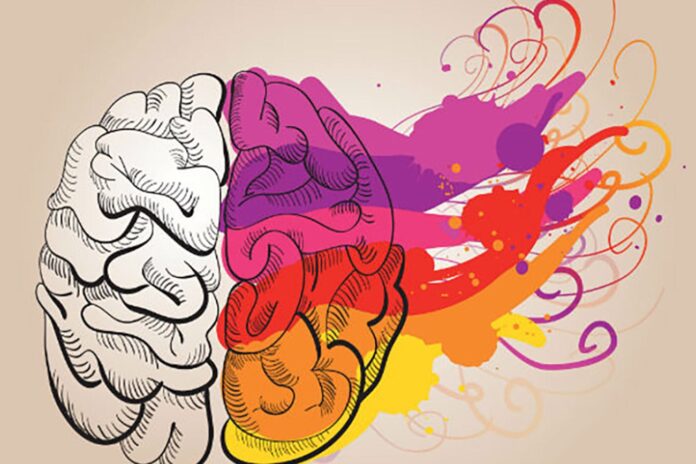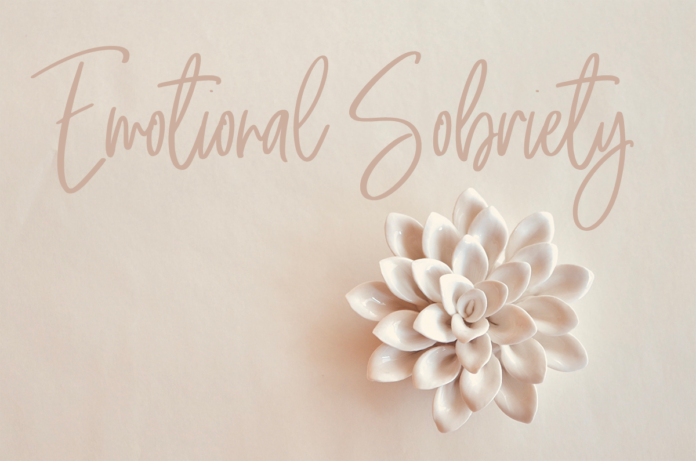Is emotional sobriety an elusive concept? You can take control and make sure to maintain it.
This article explores the concept of emotional sobriety and provides practical strategies for attaining and sustaining a balanced living. Find out how you can redefine the way you approach emotions and create a more fulfilling life!

What is Emotional Sobriety?
Emotional Sobriety is the understanding, self-awareness, and practice of managing one’s emotions in healthy ways. It is the ability to recognize, express and be comfortable with a wide range of our emotions, from the positive to the negative. The definition of emotional sobriety is the general ability to feel one’s feelings.
Unlike physical sobriety – which is focused solely on abstaining from drugs or alcohol – emotional sobriety allows for a range of feelings to be expressed in healthy ways without resorting to unhealthy coping mechanisms such as substance abuse, cutting, or suicidal thoughts.
At its core, emotional sobriety both respects and honors our emotions while providing an outlet through which they can be expressed without harm. It requires becoming aware of how exactly our emotions affect us and how we can better manage them. This includes understanding that feelings are neither “good” nor “bad” but part of our human experience.
It acknowledges that any emotion we have has potentially valuable information in it, including what we value or desire and even our core values or belief system. It also involves developing healthy boundaries with ourselves and others, affirming no longer silencing our true needs, and building strong relationships with those around us.

Identifying and Managing Triggers
An important part of emotional sobriety is understanding identifying and managing triggers. In order to maintain a state of emotional sobriety, you must be able to recognize what emotions and behaviors may cause an unhealthy reaction in yourself. This can include feelings such as anger, frustration, anxiety, sadness, or even a combination of these emotions.
Identifying triggers is not a one-time process; it can be ongoing as certain circumstances or experiences can cause new triggers to emerge. Once identified, you must learn how to manage your responses to triggers. This could include developing coping skills such as mindfulness or talking with a therapist to understand better how they affect your life on an emotional level.
Furthermore, it is necessary to recognize how often the same triggers come up and which type of tools work best for each situation. Some positive steps that can help you stay emotionally sober are engaging in self-care activities like yoga or meditating and maintaining good relationships with friends and family through supportive communication. Additionally, making sure that adequate sleep and nutrition are kept at optimal levels for life satisfaction will help manage emotions effectively.

Developing Healthy Coping Strategies
For many, developing healthy coping strategies is the key to emotional sobriety. Coping strategies help us deal with difficult emotions or situations and can be both physical and psychological in nature.
Some common coping strategies include journaling, supportive communication with a trusted friend, meditation or yoga, walking or jogging for exercise, cognitive behavioral therapy (CBT), art therapies such as painting or drawing, distancing yourself from triggers (e.g., social media or people who are not supportive of recovery goals), and healthier nutrition habits including eliminating known triggers from our diet.
These types of activities can bring us back to emotional equilibrium when we start to feel overwhelmed by stressors or experiences that trigger challenging emotional memories in our lives. When engaging in these healthy habits consistently and on a regular basis they can become established as routines that anchor us in resilience when faced with emotional challenges.

Building Self-Awareness and Self-Acceptance
Developing a better understanding and acceptance of who you are, your triggers, your emotions, and the core beliefs that drive your behavior is an essential step on the journey to true happiness and personal peace. To achieve this, you need to create a practice of reflecting inwardly to uncover the thoughts, feelings, motivations, and behaviors that drive us through life.
This practice can involve journaling or meditating daily or engaging in any other activity that helps you become more aware of yourself and allow for honest self-reflection. You can also benefit from talking to a therapist or coach who can provide an outside perspective on your life experiences and provide gentle guidance in exploring your emotions and beliefs.
As part of this reflective process, it’s important to learn how to recognize feelings like fear, anger, sadness, guilt, or shame as they arise without judging them or ourselves while they exist. This allows us to respond more appropriately when these feelings come up instead of acting out impulsively or suppressing them indefinitely.
By slowing things down enough we can identify patterns in our behaviors that lead to unhealthy coping mechanisms such as drinking excessively, using drugs recreationally, or emotionally lashing out at those we love most. Once this clarity has been achieved we are far better prepared to make decisions about how best to manage our emotions moving forward for meaningful long-term results.

Reaching Out for Support
To move forward into emotional sobriety, it is important to seek out sources of support. Support can come from many sources. Here are a few:
-Friends and family: Reach out to people you trust who have been through similar struggles, as they can provide unique insight and support that may be helpful in your own recovery process.
-Support groups: Speak with your doctor or care team about attending professional or informal groups focused on addressing the underlying causes of addiction and mental health issues.
-Therapy or counseling: Seek out private therapy services or group sessions specifically designed to provide guidance through difficult emotions and times in life when help is most needed.
Conclusion
Emotional sobriety is a state of being in which an individual can be free from emotional distress brought on by specific events or emotions. It involves managing our reactions to the thoughts and feelings that often arise in uncomfortable situations and communicating our needs in an assertive, healthy manner.
Emotional sobriety requires developing various skills such as self-awareness, emotion regulation, problem-solving, social networking, and life satisfaction. These skills are acquired by engaging in activities such as mindfulness practices, cognitive behavioral therapy (CBT), expressing emotions through writing or art, joining support groups, or talking to a counselor.
By defining what emotional sobriety means for us individually and by practicing it consistently, we create opportunities for emotional growth and healing which can lead to lasting joy and peace.









